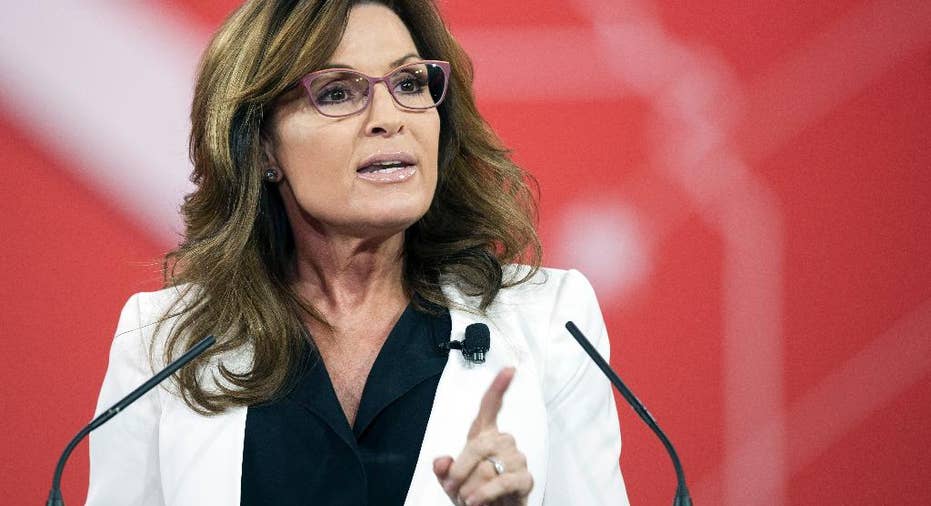Governor Palin Endorses Trump for President

Donald Trump, the reality television star-turned-politician, was endorsed by Sarah Palin, the politician-turned-reality TV star, in his front-running bid to be the next Republican U.S. president, his campaign said on Tuesday.
To voters, it may seem a natural fit. Though she never made it to the White House after becoming the party's vice presidential pick in 2008, Palin's style, which showed a candidate could be popular by eschewing policy minutiae in favor of plain-speaking, is seen as a precursor to Trump's recent success.
"I'm proud to endorse Donald J. Trump for president," Palin said in a statement provided by his campaign.
Trump said he was "greatly honored" by the endorsement, according to his campaign's announcement. "She is a friend, and a high-quality person whom I have great respect for," his statement said.
Palin was due to join Trump later on Tuesday at a campaign event in Ames, a city in central Iowa, the first state in the nation to vote for the Republican and Democratic parties' nominees in two weeks.
Trump is in a tight contest with U.S. Senator Ted Cruz of Texas for the support of Iowa Republicans, who lean conservative and whose evangelical Christians comprise a major voting bloc.
Palin was in her first term as governor of Alaska in 2008 when U.S. Senator John McCain of Arizona, the Republican nominee in that year's presidential election, picked her as his running mate.
She was folksy, and liked to suggest there were no fiercer fighters for conservative values than a small-town "hockey mom." She was a former beauty-pageant winner who professed a love of hunting with guns, and thought it more important that the United States increase drilling for oil than fret about climate change.
Trump is a real estate billionaire from New York City who has taken to vigorously insulting politicians in both parties while demonizing Muslims and some Mexicans, an unusual approach in U.S. presidential politics. He has been polling as the voters' favorite on the Republican side for months, with Hillary Clinton, a former U.S. secretary of state, the leading Democratic candidate.
McCain and Palin lost the 2008 election to Barack Obama and Joe Biden, but by then Palin's transformation from a little-known politician to national celebrity was complete. Countless Americans wore Sarah Palin costumes for Halloween that year: hair piled high in an up-do, librarian spectacles, red power suit.
In 2009, she resigned as Alaska's governor, and has since worked as a conservative political commentator and as the producer and star of lightly staged television shows about her large family enjoying Alaska's rugged landscapes.
But even some onetime admirers wondered if her moment had passed, saying they found a speech she gave a year ago before conservative voters in Iowa to be unintelligible at times.
Joe Brettell, a Republican strategist in Texas, said he thought Palin would not help Trump much "beyond a jolt in the news cycle."
Lindsey Graham - a Republican senator from South Carolina who last month ditched his own effort to become president and has endorsed former Florida Governor Jeb Bush for the nomination - said in an interview with CNN that he liked Palin.
Still, he added, "Sarah Palin can't save Donald Trump from being crazy," referring to some of Trump's proclamations, such as a plan to ban Muslims from entering the country, which Graham said made Trump unelectable.
(Writing by Jonathan Allen; Additional reporting by Eric Beech; Editing by Mohammad Zargham and Jonathan Oatis)



















